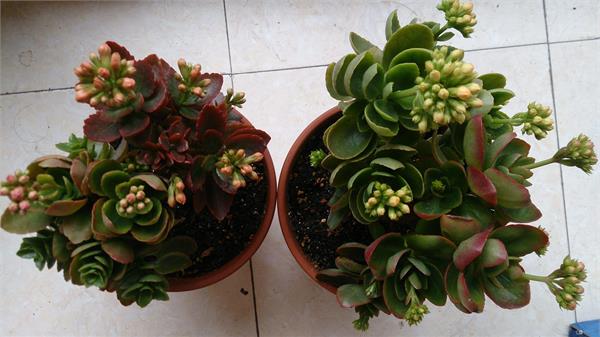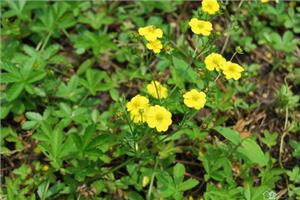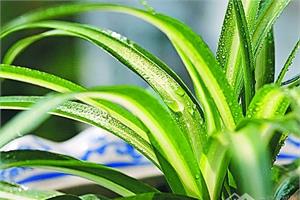Do you know how long it takes to grow flowers?
The flower language of longevity flower is longevity, good luck, therefore, many elders also like to raise it, so, in the process of breeding longevity flowers, what are the points for attention? Is it all right as long as the sun is good and the water is enough? Let's have a look!

1. Soil selection for longevity flower culture:
Longevity flowers should not be cultivated in clayey soil, otherwise it will lead to poor growth, rotten roots and leaves, and in serious cases, plant death. The basin soil was mixed with 4 parts of rotten leaf soil, 4 parts of garden soil and 2 parts of river sand, plus a small amount of bone powder. This kind of cultivated soil is loose and fertile, has good drainage performance, and shows a slightly acidic reaction, which is beneficial to the development of root system.
2. Fertilization methods for longevity flower culture:
Longevity flowers should not be cultivated in clayey soil, otherwise it will lead to poor growth, rotten roots and leaves, and in serious cases, plant death. The basin soil was mixed with 4 parts of rotten leaf soil, 4 parts of garden soil and 2 parts of river sand, plus a small amount of bone powder. This kind of cultivated soil is loose and fertile, has good drainage performance, and shows a slightly acidic reaction, which is beneficial to the development of root system.
In the peak growing season, thin compound liquid fertilizer can be applied every 15 to 20 days to promote robust growth and luxuriant flowering. If 0.2% potassium dihydrogen phosphate or 0.5% superphosphate is applied twice after flower bud formation in November, the flowers will be more, the color will be bright, and the florescence will be long.
3. Watering methods for longevity flower culture:
Longevity flowers, like other succulent flowers, contain more water and have a strong ability to resist drought, so they do not need a lot of watering. During the growth period, as long as every 2-3 days to water once, keep the basin soil slightly moist. Watering should be controlled when the temperature is low in winter. If the watering is too much, the drainage is not smooth, and the basin soil is too wet, it is easy to cause root rot.
Although longevity flowers are more drought-tolerant, they can not be short of water in the growing season and can be watered every 2-3 days. In the stage of vegetative growth, the soil must be kept moist and watered at the right time. In summer, longevity flowers can be watered once a day in the environment of high temperature, strong sunshine, large evaporation and dry air. Cold winter, longevity flowers into the dormant period, it should be controlled watering, or even not watered for a short time.
4. Lighting requirements for longevity flower culture:
Longevity flowers like plenty of sunshine, and family training should be placed in places with direct sunlight all the year round. In the northern hot summer season, the light intensity is large, which is easy to make the leaf color yellow, so it is appropriate to shade properly around noon, or put it in the half-shaded part of the room, but pay attention to ventilation and cooling. Long-term cultivation of longevity flowers, if the long-term lack of light, not only slender branches, leaves thin and small, affecting the plant shape beautiful, but also reduce the number of flowers, flowers are not bright, but also cause a large number of leaves to fall off, the loss of ornamental value.
5. Temperature requirements for longevity flower culture:
The most suitable temperature for longevity flower growth is 20-25 ℃. More than 30 ℃ or less than 10 ℃, it obviously stopped growing and entered a dormant or semi-dormant state. In winter, if the temperature is lower than 10 ℃, move into the greenhouse to survive the winter. If there are conditions, the indoor temperature can be controlled at 16: 20 ℃ during the day and 10: 15 ℃ at night, so that longevity flowers can blossom on New year's Day and Spring Festival.
The room temperature in winter should not be lower than 12 ℃. It is better to use 15: 18 ℃ in daytime and more than 10 ℃ at night. If the temperature is as low as 6: 8 ℃, the leaves will turn red and the flowering period will be delayed.
The above is the relevant introduction of this article, I believe you have a simple understanding of this after reading it, if necessary, you can continue to pay attention to the No. 1 home network for more information.
Related
- Wuhan Hospital Iron Tree Blooming Result Was Instantly Frightened by the Gardener Master
- Which variety of camellia is the most fragrant and best? Which one do you like best?
- What is the small blue coat, the breeding methods and matters needing attention of the succulent plant
- Dormancy time and maintenance management of succulent plants during dormancy
- Minas succulent how to raise, Minas succulent plant pictures
- What are the varieties of winter succulent plants
- How to raise succulent plants in twelve rolls? let's take a look at some experience of breeding twelve rolls.
- Attention should be paid to water control for succulent plants during dormant period (winter and summer)
- Watering experience of twelve rolls of succulent plants
- Techniques for fertilizing succulent plants. An article will let you know how to fertilize succulent plants.



